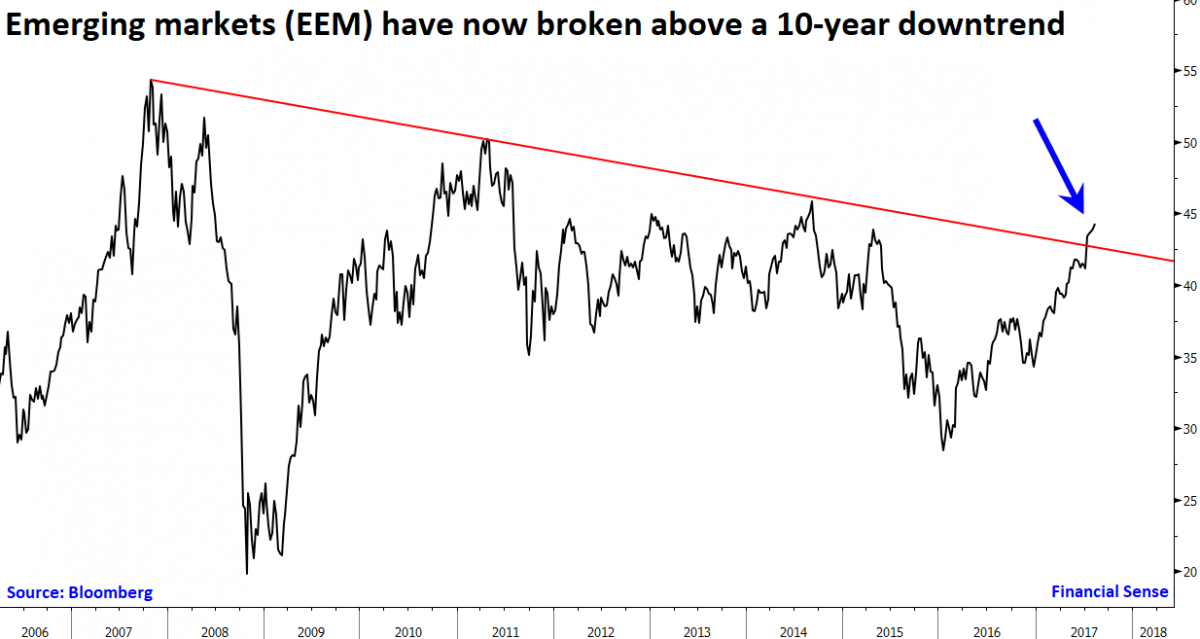The Dow Jones Industrial Average has officially broken above 22,000 and, according to Ari Wald at Oppenheimer, "there's really no warnings to suggest that we're due for a meaningful reversal lower," he told Financial Sense Newshour on Saturday.
Even with a possible pullback in the seasonally weak August-September period, Ari says they are still buyers on weakness given the "healthy" action of the market:
"The action we're seeing is very healthy in nature and the investor mindset should be that this is an intact bull market and I want to be positioned appropriately. Specifically, I want to own pro-cyclical equities that tend to outperform in a rising market environment."
Ari, who is also a member of Oppenheimer's Institutional Portfolio Strategy team, says that his favorite areas are financials, technology, and, outside of the US, emerging markets. Of the three, Ari seemed to think emerging markets have the greatest potential to outperform.
"Over the past few weeks, EEM [the emerging markets ETF] has broken a 10-year downtrend. That's right—it's been making lower highs since 2007 and it's broken that downtrend over the course of the last month. We think that's a meaningful turn in trend and we think emerging markets deserve a place in the portfolio. We think that's going to be one of the better performing areas of the market over the coming years after, really, a decade of underperforming."
In addition to his technical work, Ari also noted a positive fundamental backdrop and said that there is a "below-average recession risk" on the horizon based on the yield curve and leading economic indicators.
"I don't see the risk of that broad-based sell off where there's nowhere to hide but cash and another reason to make that case is there's still below-average recession risk until you get an inversion of the yield curve... Historically, it's not until the yield curve inverts—that's been your more reliable recessionary indicator that's preceded every economic recession over the last 40 years. In fact, the direction and level of the yield curve resembles points in 2005 and even in the mid-90s, periods where you saw continued bull market expansions. So, at the very least, I think there are areas that are going to continue to do well and, in our work, it's the more pro-cyclical areas..."
Listen to our full podcast interview with Ari Wald on our site here or subscribe on iTunes here. Sign up for a FREE TRIAL to our premium FS Insider podcast by clicking here.







